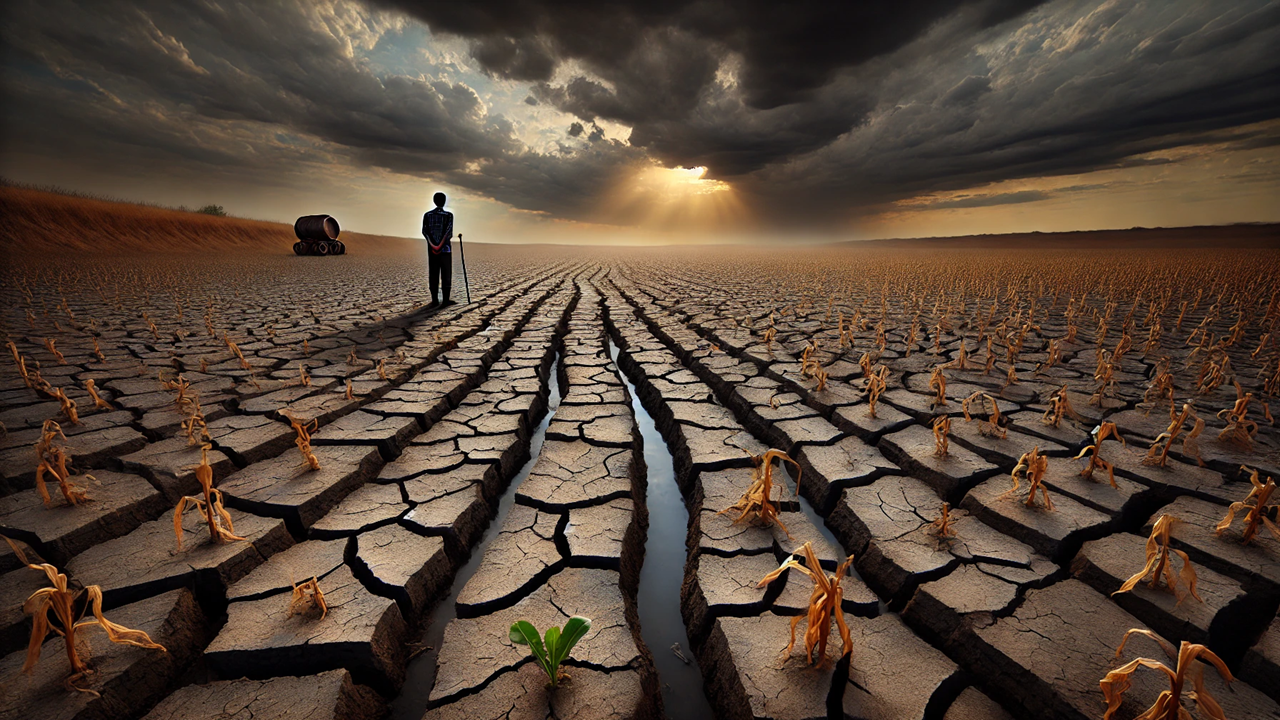How Climate Change and Conflict Are Fueling a Global Food Crisis
Climate change and geopolitical conflicts are creating a global food crisis, affecting crop production, supply chains, and economic stability. As extreme weather disrupts agriculture and conflicts displace farmers, global food security is at risk. Urgent solutions, including sustainable farming and policy interventions, are needed to address this growing challenge.

The recently published report "Crops, Conflict, and Climate Change" by the World Bank highlights an alarming reality: the world’s food production is increasingly vulnerable due to the escalating impacts of climate change and ongoing geopolitical conflicts. From failing crops and erratic rainfall to war-driven food shortages, the intersection of these crises threatens global food security and economic stability. Climate change is significantly impacting agriculture, with extreme weather events such as prolonged droughts, devastating floods, and heatwaves reducing crop yields. Changing precipitation patterns disrupt traditional planting and harvesting seasons, leaving farmers struggling to adapt. Soil degradation and desertification, exacerbated by unsustainable farming practices, are rendering once-fertile lands barren.
Conflict zones are particularly vulnerable to agricultural collapse. Wars disrupt supply chains, preventing essential crops from reaching global markets and causing price surges that affect both producers and consumers. Many nations depend on agricultural imports from war-torn regions, making them susceptible to food shortages when conflicts escalate. Additionally, violence in rural areas forces farmers to flee, leaving farmland abandoned and leading to a sharp decline in food production. Climate change is not just affecting agriculture—it is also fueling conflicts. As natural resources like water and fertile land become scarcer, tensions rise, leading to disputes over land rights and access to dwindling resources. Climate-induced migration further strains already fragile political landscapes, increasing instability in vulnerable regions. The result is a vicious cycle where climate change exacerbates conflict and conflict, in turn, deepens the impact of climate change on food production.
The consequences of this crisis extend far beyond farmers and war zones. Reduced agricultural output drives up food prices, pushing inflation higher and making staple foods unaffordable for millions. Market instability, fueled by supply chain disruptions, affects economies on a global scale. In response, governments and international organizations are pouring resources into climate adaptation strategies and sustainable farming initiatives to build resilience against these threats. To combat this growing crisis, immediate and long-term strategies are needed. Researchers are developing climate-resilient crops that can withstand extreme weather conditions, while sustainable farming practices such as agroforestry and regenerative agriculture are being promoted to restore soil health and improve water efficiency. Additionally, global policy frameworks are focusing on sustainable land use, investment in climate adaptation, and conflict resolution to protect food security.
The findings in "Crops, Conflict, and Climate Change" serve as a stark reminder that the world cannot afford to ignore the intersection of climate change and conflict. Without swift action, food shortages, economic instability, and rising geopolitical tensions will become even more severe. Governments, researchers, and agricultural communities must work together to implement sustainable solutions that ensure a secure and resilient food future. The time to act is now—before the next harvest fails and the world faces an even deeper crisis.
- FIRST PUBLISHED IN:
- Devdiscourse









